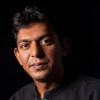The drama around Hero Alom exposes our culture of classism

The first Bangla song my sister and I learnt was Aha aji e boshonte, ato phul phote. We were two years old. My mother taught us that song, taped it for my grandparents, and sent it to them. My shushil grandparents loved it, happy that my mother was raising cultured children, in line with middle-class sensibilities that centred a secular Bangalee-Muslim identity.
Hero Alom was sent a legal notice for misrepresenting Rabindra Sangeet a few days ago. On July 27, the Detective Branch (DB) of Dhaka Metropolitan Police (DMP) summoned him to interrogate him in lieu of "cyber allegations" made against him. According to The Daily Star report titled "DB Interrogates Hero Alom," he was questioned about distorting songs, including those of Rabindranath Tagore. Alom was released after assuring the police that he would refrain from such activities (presumably by getting voice lessons?).
And therein lies the question: Who are the police to police Rabindra Sangeet? But my first thought was, wait – if Hero Alom was summoned by the Detective Branch, whose responsibilities have clearly expanded to policing cultural products, are we all at risk? Because that recorded version of Aha aji e boshonte, I am certain, is on par with Hero Alom's – barely in tune and "rap-like."
I joke, but this is serious. The state actors who are responsible for keeping communities safe (with guns, no less) are now at the helm of keeping us safe from ostensibly badly sung songs by those we hold in high regard – although that, too, is a matter of taste and preference. In an era wherein anyone can produce content, where the markets decide what is good and what is not, as demonstrated by their monetary and click commitments, what does it mean to have the police come down on a single content producer simply because it grates on hegemonic middle-class sensibilities?

It means middle-class membership is not merely economic – it is cultural. And lest we forget, anyone who defies the cultural norms set by a bygone era of middle-class educated elites must be reprimanded. It means Hero Alom may (or may not) have economic capital, but he does not have the social and cultural capital that one must have to be allowed to sing Tagore's songs. They are only to be sung by representatives of middle-class secular families who had ostadjis at home, those who know how to sing his songs with reverence of a particular kind. Some argue Hero Alom should not sing at all, because he cannot sing, perhaps because he has not been trained. But when the internet is full of Bangla singers who sing what they want, in any manner that they wish, it is clear when only one is singled out. When that someone is a stranger to the regular milieu of people who sing Tagore songs, even the police are on alert. They are on alert because he is an ordinary man who has somehow been able to find a voice. He has a following. And because he is a part of the uncoded, under-known working classes, he is dangerous. What if he gets out of hand?
Such outrage about culture makes one question the thinness of said culture. If one's culture can be so easily eroded, perhaps it is worth being destroyed? If it is so easy to disturb the sensibilities of a nation, perhaps those sensibilities are not sophisticated. I joke (again), because we know it's not about culture. It is about who gets to be the spokespersons of our culture. Our classist sensibilities cannot handle a Hero Alom singing Tagore songs and getting attention for it. If no one listened, he would have been safe.
Which is funny, because under capitalism, when citizens have been turned to consumers, to dictate what is good and what is not makes zero sense. When the state supports a market-based capitalist society in which consumer choice, as measured by what they consume, is ostensibly the clearest indicator of quality, to clamp down on a popular "bad" singer for singing badly makes me slightly hopeful. Does this mean the state actually sees that the markets are unable to produce social goods? That the markets actually accentuate inequity? Are we now moving towards the end of late-stage capitalism, end of the indignities and inequities that mark the current sociopolitical economy?
No. Not so fast.
Just like they made an example out of Shahidul Alam to let people know what to expect if they tarnish the image of this nation, a different, more grandiose-sounding Alom is now being scapegoated to send another message to the people. The message is: There is no room for experimentation and creativity unless it is supported by large global corporations, to which they (we) are beholden for economic and image-related reasons.

But that is exactly what Tagore did not have in mind. According to Shayan Chowdhury Arnob, who is the producer of Coke Studio Bangla, the corporation that is allowed to experiment with Bangla music, and a graduate from Rabindranath Tagore's Visva-Bharati University, Tagore had created two schools: One that would follow his written word and sing exactly as he prescribed, and one in which they could experiment. Indeed, Tagore wanted people to respond to his work, not simply regurgitate it. However, Navine Murshid, political scientist and my sister who is currently working on Tagore, points out that he configured middle-class sensibilities through his songs, which have been used to civilise and govern citizens and citizenship. I offer, that is exactly how Hero Alom is being civilised, not simply by civilising social norms, but by the use of state powers.
That Hero Alom emerged from the police station saying,"I was merely told to create good content, not to stop singing," probably says much more about how governance works than anything else.
Nadine Shaanta Murshid is associate professor at the School of Social Work in the University at Buffalo, US.

 For all latest news, follow The Daily Star's Google News channel.
For all latest news, follow The Daily Star's Google News channel. 










Comments